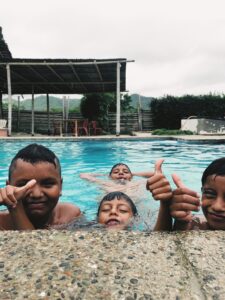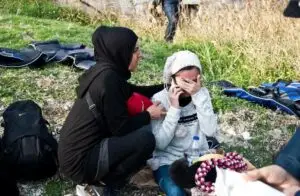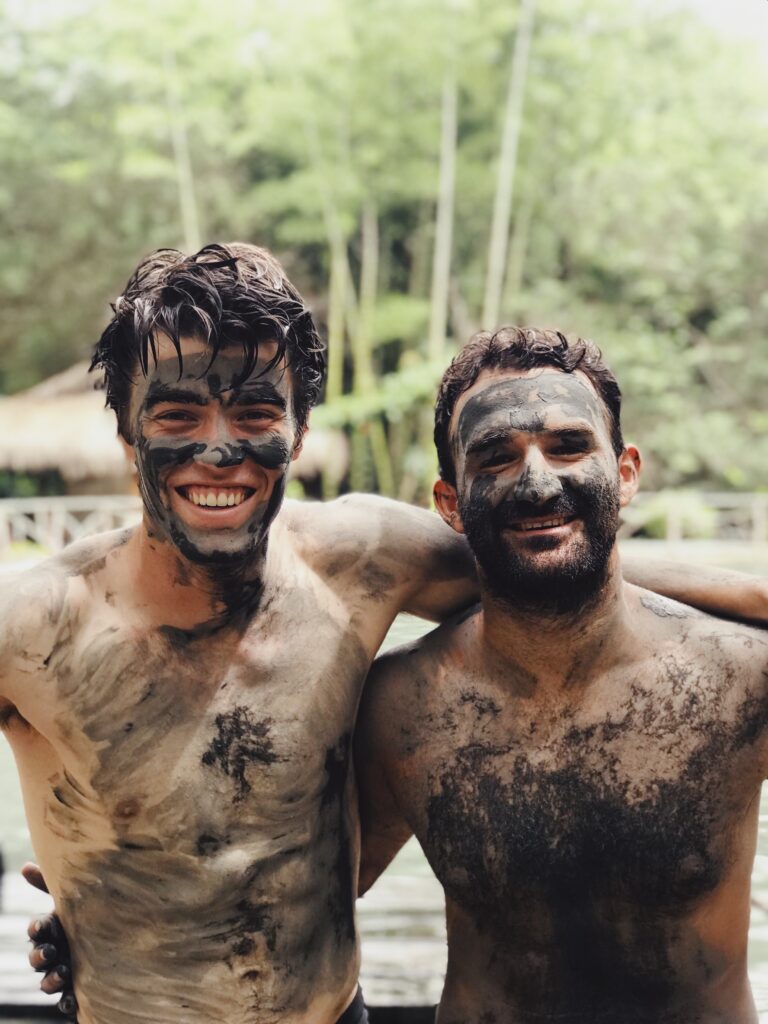(Part two of my lifespan blog)
My daughter studies medicine and she reads a lot, hears lectures and streams video (because of covid) most of what she is taught.
I do not know how she got the intelligence and self-discipline for the hard work. It must be the mother, for one thing is certain – It’s not from me.
Her “thing” is that she likes to lecture us (me;) about what she has learned. This helps her learn better, she says. She also sends me lectures and recordings of things she thinks could be of interest for me. My point is that I have spent some time listening to lectures about the B and T cells and their structure. (The cells in our body that fight infections, viruses, bacteria, and other pathogens.)
She describes in detail our immune system (which I will not even pretend to understand). The worst (or best) of all, is that it’s interesting.
Learning something new is never too late
She is very pedagogical, and it is easy to visualize what she is saying. But I also find the lectures she sends me super interesting. Yesterday I heard a lecture by an elderly doctor with a special field in women’s health. Especially women’s health and childbirth – he had worked in southern Africa for many, many years. Disturbing, informative and enlightening information. It shows how much I still do not know and how much learning it is possible to take with you no matter your age.
My head is not always with me due to the PTSD – (I have the diagnosis as you know) and it means that I do not always manage to absorb everything, but sometimes I have a clear head and are ready for some input.
Our stupid evolution
What we discussed in the extension of this morning’s “input” was the lack of intelligence behind the evolution. Strange as it may sound, it is not particularly smart.
It’s like this: we (the evolution) try something once, and it does not work, we try another way and it still does not work, then we try a third way. And then it work.
Thus, we move on with the 3rd solution of whatever it was.
My point (and certainly many others’) is that if we had tried a fourth time (even if the third worked) it might have been even better than the third, but look, the evolution did not understand that. It went on with what worked and not with what would have been even better. The fourth (or fifth solution) will not come until a few million years or so.
So in that sense, evolution is not necessarily smart. It only runs on what “works”. The task of evolution is one thing and one thing only: reproduction and survival.
That’s it. Nothing else.
Our stupid body
The body is also “stupid”. David Sinclair has understood this. The logic is really very clear. If the purpose of life is to reproduce and then die, it makes perfect sense to postpone reproduction.
How do you do that?
According to David Sinclair, there are three pathways that work that are important to our lifespan.
Three pathways to a longer life and how to make use of them
The first are sirtuins, which respond to the environment. Then, there’s mTOR, which registers how much protein you’ve been eating. And the third is called AMPK. The activation of any one of these three pillars of longevity will give health benefits that slow down aging.
Sinclair’s lab works with the sirtuin pathway. There are seven genes in a certain family called sirtuins that respond to the environment and protect the epigenome. And they have shown that when they activate these sirtuins, either with lifestyle or natural molecules, the health gets improved and so does the longevity in old age. Being hungry every once in a while, intermittent fasting, exercising, or losing our breath makes the sirtuin genes more active. The overall theme is that anything that does not kill you makes you live longer. Even as little as fifteen minutes every few days is sufficient to get those activities up and running.
Eat less – live longer
DECADES of research have shown that calorie restriction extends lifespan and delays morbidity in many small, short-lived species: yeast, spiders, and various fish and rodents. In humans, though, the benefits of calorie restriction are still unproven, and probably less straightforward. And how calorie restriction slows the aging process is still not well understood.
“The interesting thing about calorie restriction is that we used to think the body was in some way slowing down, maybe in the number of heartbeats or production of free radicals, ”says professor of genetics David Sinclair. “But it turns out that’s wrong… .When we’re calorie restricting, what we’re really doing is telling the body that now is not the time to go forth and multiply. It’s time to conserve your resources, repair things better, fight free radicals, and repair broken DNA. “
Being cold is goood
There is also some evidence that being cold or exposing your body to heat also activates those same pathways. Specifically, the sirtuin-3 gene gets activated by cold, which promotes the browning of fat, which is good for us. Brown fat is full of mitochondria that use energy and speed up the metabolism. This is beneficial because it reduces the amount of fat that we put on and also because browning seems to produce healthy protein signals. It’s been shown that you can make white fat turn brownish or beige by being cold. White fat is very bad, especially around your organs, whereas brown fat under the skin is healthier. The older you get, the harder it is to make brown fat. That’s why Davis Sinclair says that it’s good to start early with these lifestyle changes.
Get off your but, you lazy...
If you are going to live long or longer, it is a goal to trick the body into thinking that you are in a continuous stressful situation. This is obviously not as harsh and inhuman as it sounds. Stress for the body is, for example, being exposed to a little less food from time to time, exercise, a cold bath, a cold shower, eating vegetables, preferably those with strong colors – in short, everything your mother has already told you to do.
Or as Sinclair puts it: get off your butt and eat your vegetables.

What is a lifetime, really?
Twenty good years? A good friend of mine once said while walking in the mountains of Gran Canaria.“Knut, we have twenty good years left. Use

How to protect yourself from your PTSD, when the world is on fire
(It is war. And it is mine. ) The headlines that meet me today are about the war in Ukraine. Alarms going off, people fleeing,

The thin film of civilization
The thin film of civilization This picture are taken on Lesvos. Her husband and baby drowned on the way over from Turkey. This is a
